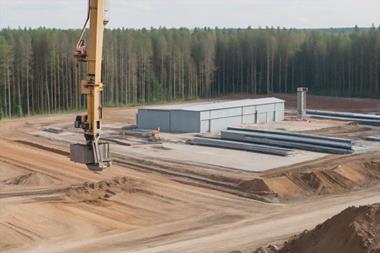The Asia Pacific region is not as threatened by the current market jitters arising from the sub-prime crisis as it might have been 10 years ago, as Michael Grimes reports
MIPIM's recent Asian real estate jamboree in Hong Kong was as much about checking the foundations of the Asia Pacific property market for signs of rising damp in the wake of the sub-prime troubles in North America as it was about hard sell.
A key message in many presentations from consultants was that the sub-prime jitters were unlikely to have a significant negative effect on credit and valuations in Asia.
A number of speakers also stressed that 2007-08 is not 1997-98. Ten years ago several Asia Pacific real estate markets crashed after aggressive selling of national currencies exposed underlying structural weaknesses in their economies.
The suggestion at MIPIM Asia is that things are different now because real estate asset prices in Asia Pacific countries are supported not just by speculative investment but also by strong domestic demand in national markets due to correspondingly strong domestic GDP growth.
"There is going to be a ripple effect from sub-prime. It would be naïve to think that wouldn't happen," says Rob Blain, chairman and CEO Asia Pacific of CB Richard Ellis, the real estate services company.
"But even in markets like Japan, any product of quality still has an arbitrage of between 150-250bps in relation to cost of capital and yield," he explains.
David Edwards, regional director, Japan, for LaSalle Investment Management, echoes this view.
"Bubbles only happen when prices get out of synch with demand. At the moment in Japan we are seeing historically low vacancies in the office sector," he says. The relatively low exposure of Asian financial institutions to the sub-prime sector was also cited at MIPIM as grounds for optimism.
"The market now believes that collateralised debt obligation exposure is limited [among Asian financial institutions]," says Megan Walters, director research and business analytics Asia Pacific for Cushman & Wakefield, the real estate services firm.
The ‘not 97' thesis may have merit up to a point, but there are some difficulties with it. Firstly, despite the great strides made - especially by the Chinese and Indian economies - there is some way to go before consumers in Asia Pacific will be wealthy enough to bridge the gap left if a significant economic slowdown in North America and Europe depresses demand for Asian goods.
Walters says they may not need to. "As Access Asia, a China-based consultancy, has pointed out, even if consumer spending declines, in hard times consumers tend to want less expensive goods. These are just the sort that China and other Asian countries with low production cost bases produce and currently sell to poorly performing economies," she says.
"If US consumption were to fall, the World Bank calculated that a reduction by the equivalent of 1% of GDP would cut China's growth by only 0.2-0.5%. The overall impact on China's economy would be minimal," she adds.
History suggests though that at times of economic pressure, foreign investors retreat to core markets.
"The word on the street is that some global investors are holding off on some deals in Asia, not because there is anything wrong with Asia's fundamentals, but because they may need the cash back home," says Walters.
A high level of Asian liquidity is also resulting in investment flows being reversed and Asian capital being allocated to European and North American real estate assets, says Walters.
No one can doubt from the record attendance of 2,130 delegates, 236 exhibiting companies, 376 investor representatives and 71 journalists at MIPIM Asia 2007 that interest in Asia Pacific real estate is at unprecedented levels. As more money piles in to the market and yields become compressed in primary markets, one is left with the feeling that some people - possibly even some institutions - will get their fingers burnt.
"If you don't know the market or you don't understand the market, don't go there," Rong Ren, chief executive of Hong Kong-based private equity firm Harvest Capital Partners, counsels foreign investors regarding China.
"Anywhere in China - even in first tier cities, you need a local partner. Second and third tier cities have significant growth opportunities, but there you need not only a local partner but someone with a good knowledge of the local leadership. If the local mayor is a strong leader, he can make things happen. If not, you could be stuck in the decision-making process for months or even years," adds Ren.
On the plus side though, the depth of expertise and level of advice available on Asia Pacific real estate from companies operating to international standards is far higher than it was in 1997. The list of participants at MIPIM Asia runs to 147 pages, including all the major players on the sales and consultancy side such as CBRE, Cushman & Wakefield, Jones Lang LaSalle and Savills. The big players also operate property funds in the region.
"Even leaving aside the strong economic performance of China and India, there's a lot more structure and process in Asia Pacific real estate markets than there was seven to 10 years ago," says Rob Blain of CBRE.












